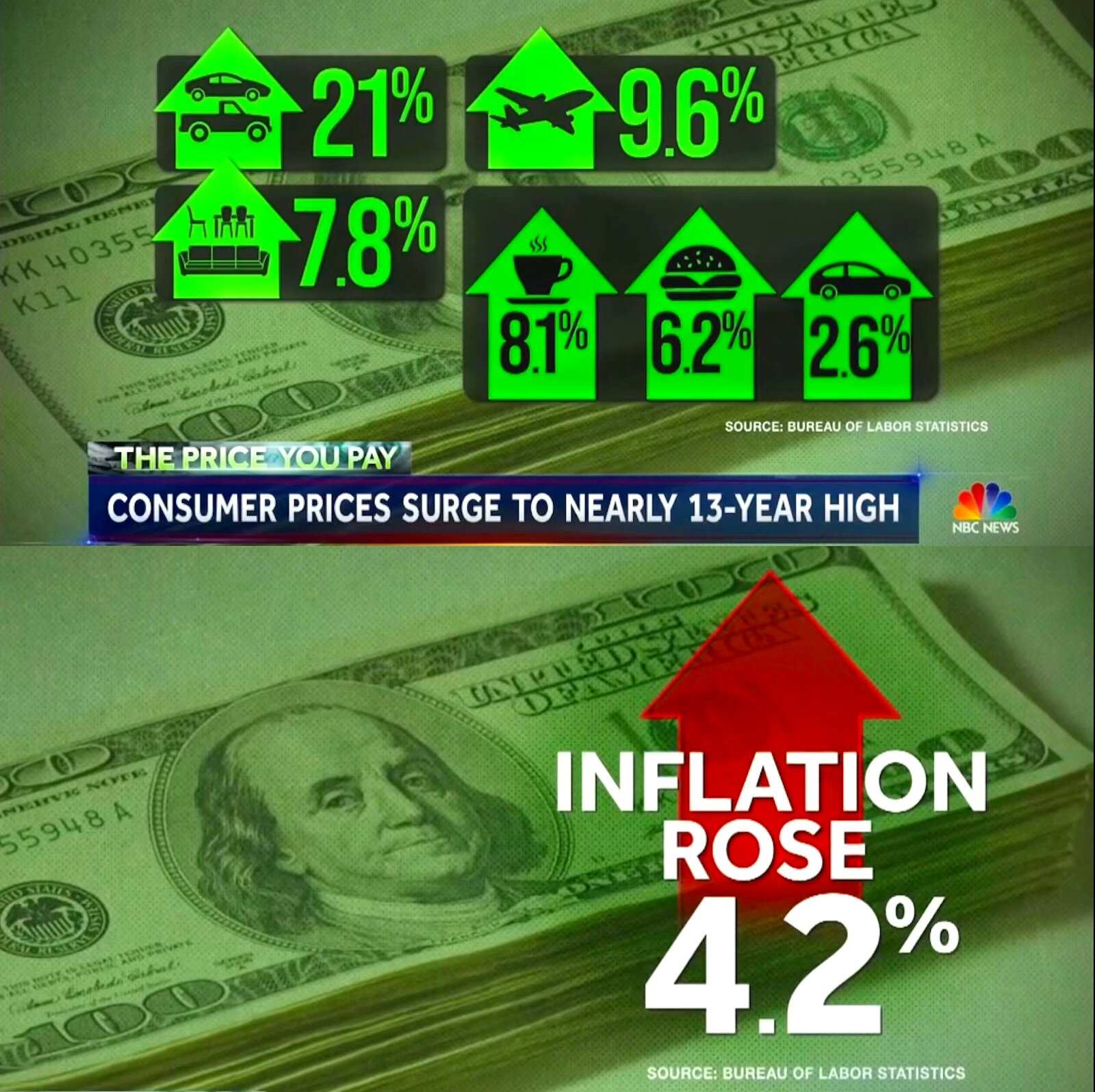Inflation, the Silent Killer
Twenty-one percent of US dollars that have ever been printed were printed in 2020.
Think about that for a second…
ONE out of every FIVE dollars you see didn’t exist before 2020. And Trillions more are on the way….
💸 💸 💸 💸 💸 💸 💸 💸 💸 💸 💸 💸 💸
We have already seen the effect of inflation this year, and inflation is most likely unavoidable (Everything Screams Inflation, WSJ) in the coming months and longer.
What does this all mean?
It means everything we touch will be more expensive. According to the Bureau of Labor Statistics as reported by NBC, at the time of this blog, our daily cup of coffee went up 8.1%, airfare rose by 9.6%, furniture and household costs increased by 7.8% and automobile prices also went up by 21%. Inflation rose 4.2% and consumer prices have surged to a nearly 13-year high.
Higher inflation also means higher borrowing costs from lenders as well as increased maintenance costs such as labor, materials, and supplies. Naturally, this leads to higher operational costs for companies resulting in lower expected earnings in the long run, putting downward pressure on stocks.
Keeping cash and/or putting money into a savings account, CD, or money market account—which earns you less than 1%, while inflation is around 4-5 % annually means you are losing hard-earned money!
How about dividend stocks, you ask? Traditional stocks and mutual funds are much more exposed and even more vulnerable to market volatility than cash and CDs. We just had years of strong stock market performance. As investors fear for inflation and the potential decrease in living standards due to reduced buying power as a result of inflation, the natural tendency is to sell stock shares which could further affect the market downturn.
In short, inflation is a silent killer of a traditional portfolio. Your wealth will shrink, and now more rapidly than ever if you do nothing or invest traditionally.
So what are the ideal assets and investments that can continue to appreciate during inflation?
As some of our major recessions—such as the Housing bubble, the Dotcom bubble and the Great Recession—have taught us, affordable apartment housing is an asset that will most likely be in demand.
During difficult times, consumers prioritize their expenses towards necessities. If you lose your house, can’t afford one, or prefer not to buy one, you rent.
As baby boomers age and downsize, more seniors will rent.
The younger generations are also showing a higher tendency to rent as wages continue to lag and home prices continue to soar. All of these factors lead to even more rental demand.
What happens to rent during inflation? It increases like everything else, hence resulting in a higher rent income for the owners/investors! Savvy investors invest in this type of asset to generate passive income that is also recession-resistant. At the same time, investors are growing their wealth simply by just holding on to these multifamily assets as they increase value year after year much more reliably than SFH (single family homes) and other types of commercial real estate assets.
Invest for tomorrow. Be proactive in growing your wealth and fighting against inflation.
“It is too soon to go all-in on the idea that inflation is inexorably headed higher. But it would be crazy to build a portfolio that didn’t consider inflation a major risk.” - WSJ

